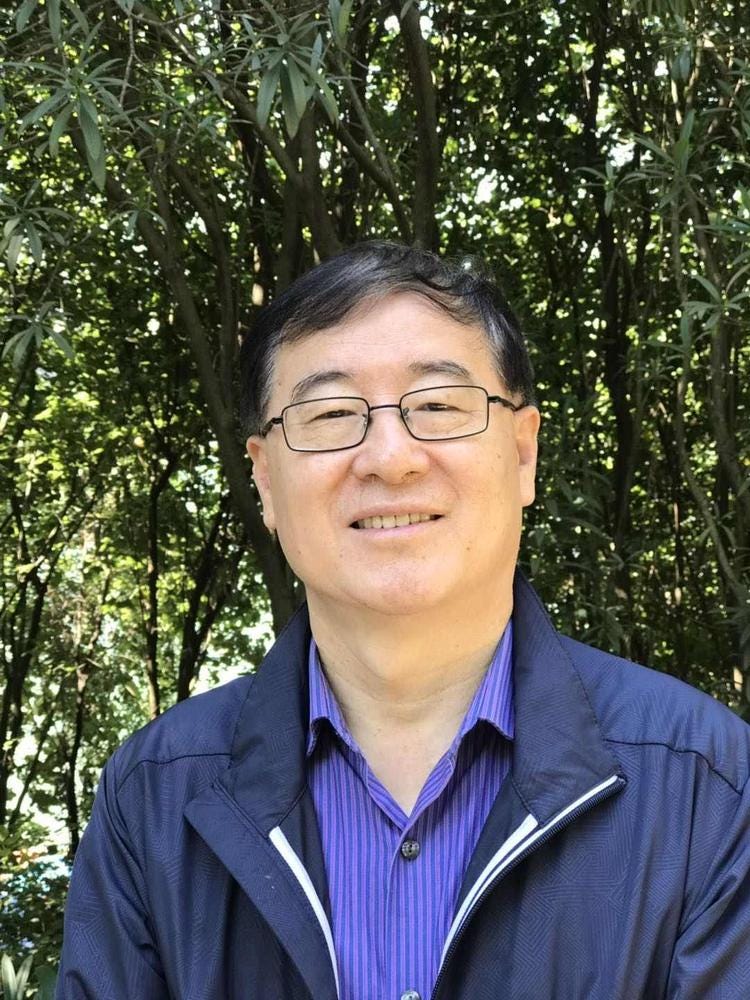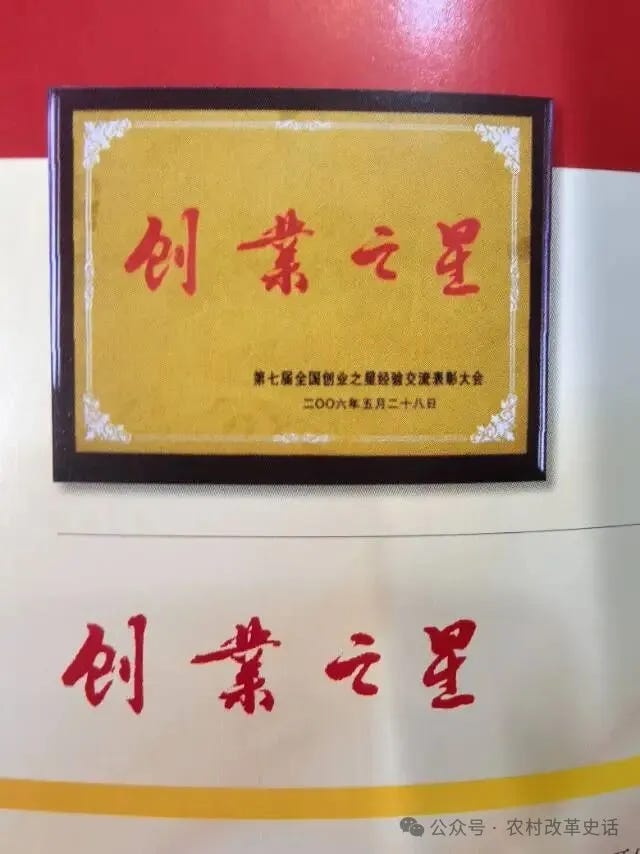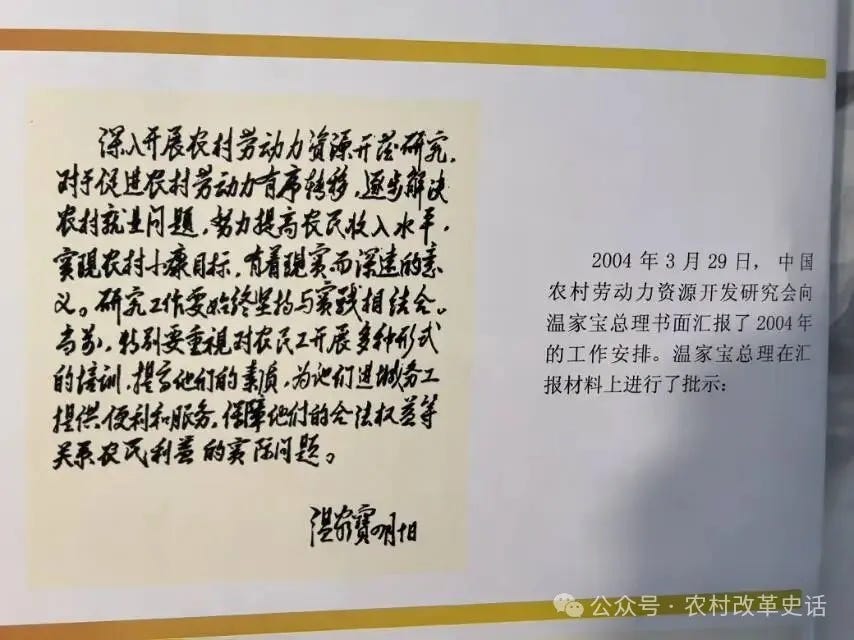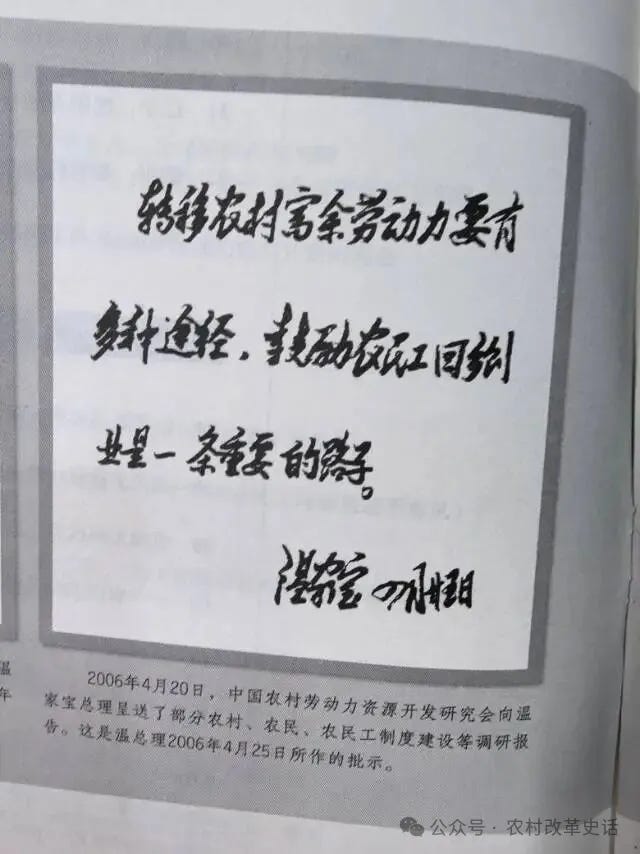Wen Jiabao and Domestic Migrant Workers
The story of Premier and peasants: Wen Jiabao’s legacy on labour mobility, the abolishment of abusive rules, and support for village democracy.
Zhao Shukai (赵树凯; b. 1959) is a Chinese official of rural policy and governance. From 1982 to 1989, he worked at the Rural Policy Research Office of the Communist Party of China Central Committee’s Secretariat (later reorganised as the State Council’s Rural Development Research Centre and subsequently the Research Centre of Rural Economy under the Ministry of Agriculture and Rural Affairs). Starting in 1990, he served at the Development Research Centre of the State Council, holding roles including Director General of the Rural Department’s Organisation Research Office and Director General of the Information Centre. He also served as Deputy Party Secretary of Zhuolu County, Hebei.
The following article was published on 13 September 2025 on the official WeChat blog of the 农村改革史研究工作委员会 Rural Reform History Research Committee of the 中国城乡发展国际交流协会 China International Association for Urban and Rural Development. The WeChat blog regularly publishes accounts of China’s rural governance history.
温家宝与“民工潮”
Wen Jiabao and the “Migrant Worker Rush”
As early as his vice-premiership, Wen Jiabao made migrant-worker welfare a priority, urging “genuine compassion” in work related to migrant workers at Central Rural Work Conferences and condemning discriminatory regulations and practices then in place.
In October 2002, at the 16th National Congress of the Communist Party of China (CPC), Wen Jiabao was elected to the Politburo Standing Committee. Before formally taking office as premier in March 2003, he pressed for adjustments to policies on migrant workers. Against this backdrop, the General Office of the State Council swiftly issued Document No. 1 of 2003, the “Notice on Strengthening the Management and Services for the Employment of Rural Migrant Workers.”
Following the 2003 “Sun Zhigang incident,” where a young graduate was fatally beaten in police custody for lacking a temporary residence permit, Premier Wen Jiabao called for the immediate abolition of the Measures for Internment and Deportation of Urban Vagrants and Beggars. Promulgated in 1991, these measures had long empowered civil affairs, labour, and public security organs to detain rural migrants in cities, resulting in widespread abuse including violent detention, arbitrary fines, forced labour and compulsory repatriation. When departments sought to delay repeal on procedural grounds, Wen firmly rejected their request.
Upon taking office, Wen Jiabao directed the drafting of State Council General Office Document No. 1 (2003)—the “Notice on Strengthening the Management and Services for the Employment of Rural Migrant Workers.” Though issued by the General Office rather than the State Council or the CPC Central Committee, it signalled a major policy shift; in policy impact and historical standing, it was comparable to the Central Committee’s No. 1 documents of the 1980s. Centred on removing unreasonable curbs on rural labour mobility, it marked a turning point in policy toward rural migrant workers.
The document required sweeping deregulation: abolish administrative approvals for hiring migrant workers; lift occupational and job-type restrictions on rural migrants in cities; and refrain from interfering with enterprises’ lawful, autonomous hiring. It ordered procedures for rural migrants seeking urban employment to be strictly reviewed and streamlined, scrapping migrant-specific registration items and moving toward a single temporary-residence-permit system. It mandated equal application of technical qualifications, health standards, and other conditions across industries, especially in special sectors, to both migrants and urban residents. It also barred any fees beyond the standard certificate costs set by the State Council when processing migrant employment or enterprise hiring. In addition, it instructed strict adherence to the Measures for Internment and Deportation of Urban Vagrants and Beggars, prohibiting any expansion of repatriation targets to include migrant workers and forbidding forced repatriation or arbitrary detention and interrogation. Collectively, these steps helped end years of systemic discrimination and multi-agency suppression of migrant workers.
Wage arrears for migrant workers were widespread at the time. On rural inspection tours, Wen Jiabao frequently broke from pre-arranged itineraries set by local officials, making unannounced detours to villages and households to visit migrants’ families and personally directing efforts to recover overdue pay.
Schooling for migrant workers’ children in cities was also a great concern for Wen. On 29 May 2004, 126 teachers and students from the Xingzhi School for Migrant Workers’ Children—later officially recognised and renamed the Haidian Xingzhi Experimental Primary School Affiliated to the Beijing Institute of Education—were invited to a Children’s Day performance hosted by the National Government Offices Administration of the State Council. Premier Wen met two student representatives and asked about the school’s situation. Earlier, at Wen’s instruction, the Secretariat of the State Council General Office had invited me to lead several principals of migrant-children schools into Zhongnanhai for a briefing.
Wen Jiabao’s attention significantly improved conditions for schools serving migrant workers’ children. Since their rapid emergence in the mid-1990s, these schools had faced eviction and forced closure as “unauthorised” institutions. The Children’s Day event Wen attended drew broad government attention and public support. The school soon became part of the Project Hope Urban Student Aid Initiative, and officials from the municipal and district party and government organs visited to offer condolences to teachers and donate computers, books and science education materials. The policy shift starting in 2003 marked a historic turning point for these schools and for migrant workers themselves.
Wen Jiabao’s profound concern for farmers, especially his emphasis on and care for migrant workers, also showed in his long-time support for the China Association for the Development of Rural Labour Force Resources.
Established in May 1989, the association emerged in direct response to the “migrant worker rush” that had erupted earlier that year. It was created under the guidance of Du Runsheng, then director of the rural policy research office of the Secretariat of the CPC Central Committee, with deputy director Wang Yuzhao serving as president. Under Du and Wang, it pursued research and advocacy grounded in a clear conviction: to defend farmers’ civil rights, including freedom of identity and freedom of movement. At the policy level, it opposed and criticised measures that discriminated against farmers and restricted their mobility; in society, it pressed to improve the environment for farmers’ migration. I served as the association’s deputy secretary-general from 1990 and as secretary-general from the early 2000s until 2016.
In the mid-1990s, amid a strict macro-policy clampdown on rural migrants’ urban employment, the China Association for the Development of Rural Labour Force Resources launched a programme in 1994—the “Entrepreneurship Star” experience sharing and commendation event—to foster a more supportive climate for mobility. The biennial event honoured migrant-worker “Entrepreneurship Stars,” recognising farmers who had become entrepreneurs after working or doing business away from home. As vice premier, Wen Jiabao personally attended the association’s Entrepreneurship Star events on three occasions—June 1998, June 2000, and June 2002—delivering remarks each time. After the 2003 government transition, Vice Premier Hui Liangyu took part in these events in his stead.
(The “Entrepreneurship Star” award plaque, inscribed by Premier Wen Jiabao for the China Association for the Development of Rural Labour Force Resources.)
After taking office as premier, Wen Jiabao no longer attended the association’s migrant worker entrepreneurship events in person, but he continued to actively support the association’s work.
On 29 March 2004, the association submitted its annual work plan to Premier Wen Jiabao. On 10 April, Wen issued written instructions, noting that “research on developing rural labour resources has both immediate and far-reaching significance for the orderly transfer of rural labour, resolving rural employment pressures, raising farmers’ incomes, and advancing rural prosperity. Research work must always be integrated with practice. At present, particular emphasis should be placed on practical issues affecting farmers’ interests, such as providing diverse forms of training for migrant workers to improve their skills, offering convenience and services for their urban employment, and safeguarding their lawful rights and interests.”
On 20 April 2006, the association submitted a research report on migrant worker issues to Premier Wen Jiabao. On 25 April, Wen issued written instructions: “There must be multiple pathways for transferring surplus rural labour; encouraging migrant workers to return home to start businesses is an important one.”
Wen Jiabao also penned the inscription for the association’s award, “Entrepreneurship Star.” His sustained support for this organisation carried weight with senior departments and policy researchers, exerting a strong guiding influence on policy toward migrant workers.
Wen Jiabao worked to advance genuine village self-governance. On a rural inspection in Guangdong in February 2012, he said: “We must safeguard farmers’ electoral rights and unwaveringly implement village self-governance and direct elections of village committees. The great majority of people are discerning and capable of sound judgment.” He added: “Village affairs are not to be decided by the Premier, nor by the village chief; they must be decided by the villagers themselves.” He stressed, “We must fully trust and rely on farmers. Improving rural social governance through village self-governance is the only right path. In handling rural affairs, we must listen broadly to farmers’ views—this is the fundamental principle, more important than any specific method.”
In my view, Wen Jiabao belonged to the same lineage as Wan Li and Tian Jiyun, sharing their historical concern, policy philosophy and reformist drive.









